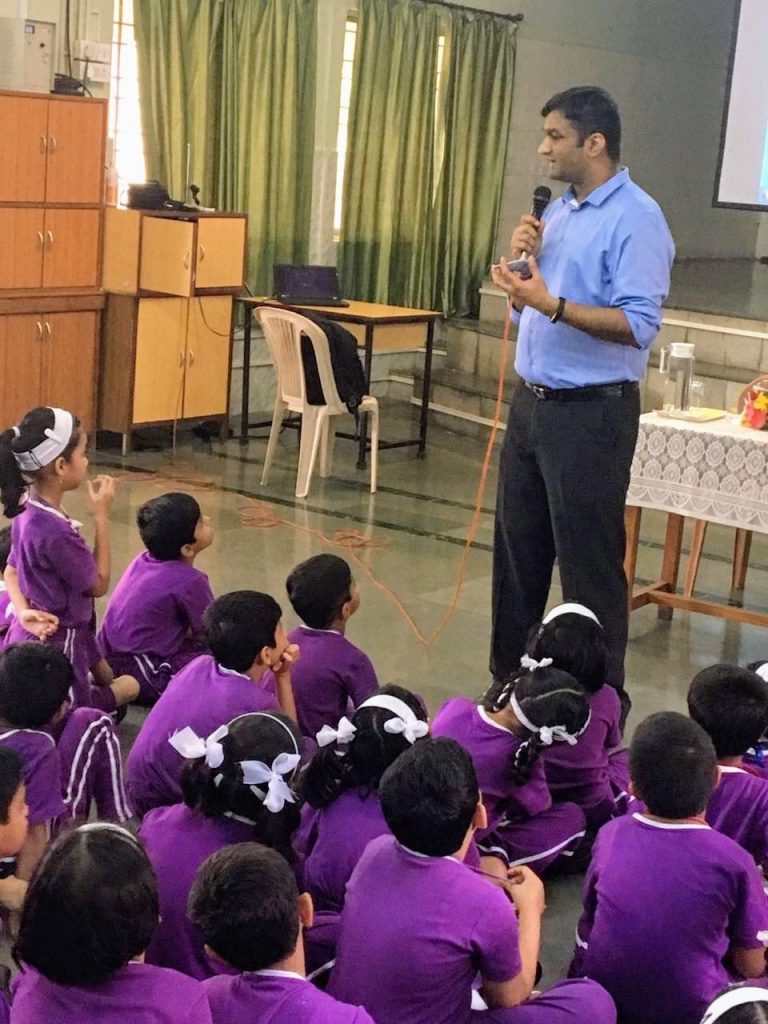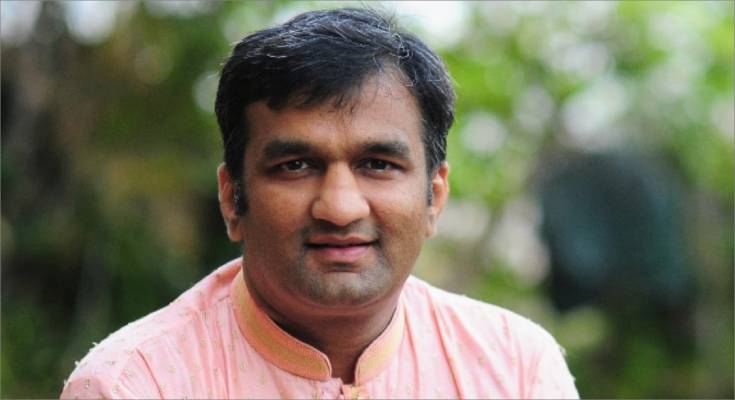We all talk so much about minimalism and sustainability, but do we really walk the talk? At Visionary Voices this week, we have Rushabh Turakhia, Founder of Your Turn Now – a kindness initiative, sharing his views on how if we walk the talk, we can make the world a better place for the next generation. Join us as Mahima Sharma, Founder of The Think Pot delves into the transformative power of conscious living and nurturing a kinder, more sustainable future during an EXCLUSIVE interaction with Rushabh.
How do you believe embracing a minimalist lifestyle can radiate kindness towards us and the environment? Can you kindly share a personal example of how you’ve weaved the threads of minimalism, sustainability, and Kindness into your CHILD’s daily life?
I have always believed that less is more… and this stands true when I say so. As for me, embracing simplicity is the key, coupled with Kindness. I firmly believe it’s the work that you do that matters, the words that you say count and how you make someone feel that eventually counts … so you could be adorning the best and the most expensive clothes and accessories.. but if your words and actions don’t create an impact… It’s all in vain. When you are embracing minimalism, the focus is not on materialistic things… which is more the outwardly appearances, etc… thus the focus is automatically on the inner self, which leads to introspection, self-awareness, reflection, and eventually love for yourself… therefore when you love yourself you automatically love others, and this world becomes a kinder place.
“Minimalism cannot be forced. It is an act that undoubtedly comes from within and must be lifelong. Children are a reflection of their parents, and they learn by doing and from what they observe. Thus, I led and role-modelled the same to ensure my child adapts and adopts a sustainable lifestyle. Discussions around dinner time revolved around the significance and importance of leading a sustainable lifestyle. Of course, there were two sides to the same, two opinions which we further spoke about understanding its need in today’s times. Eventually, through regular talks, through my actions that my child saw and observed, it passed on to him very naturally as that became our lifestyle.”
To share an example, if I came back from work and were to go out again, I wouldn’t change into another outfit and instead wear the same, at the same time explaining how important it is to save water and soap, thus doing my bit for the environment. Also, whenever new clothes are purchased, it goes with equal or more old clothes being donated. Even for gadgets, is it necessary, will it affect my life positively, or is it to be bought only under peer pressure? I also keep sending him mindful conversations and short quotes or tips on living a sustainable life whenever I read or come across them. I believe even if a few of the points he imbibes for a lifetime could make a difference—every bit matters.
I can see many changes in him through his various initiatives. Recently, he collected old tabs/laptops and passed them on to the underprivileged so they can study, thus contributing to recycling and sustainability.
Minimalism sometimes involves distinguishing between necessities and desires. How would you gently guide someone in making these distinctions while respecting their unique circumstances? When considering the benefits of minimalism, how do you think its ripple effects can contribute to a kinder and more sustainable world?
In today’s times, everything seems to be a necessity. Especially among Gen Z and the youth, I see immense pressure to look and feel in a certain way. Acceptance and being a part of a group are so crucial that desires become necessary, thanks to social media and its influence. When distinguishing between a need and a desire, I first ask myself…. Is it necessary? Can I survive without the same? Is it superficial? And most importantly, how is it positively helping me? So when I dine out at a restaurant, and the waiter asks for a change of plate, I refuse as it’s not required; looking at me, my friends also have started doing so; we do not change our plates and continue eating in that one same plate till the end.
Sales at stores have become such an essential part of our lives. We wait to hear when a particular shop or product goes on sale, and we read about long queues outside fast fashion stores creating shortages using the psychology of scarcity, which are all detrimental to the environment.
“During my interviews/talks, I generally talk about needing vs. wanting certain things. Being hungry, food is a need, but ice cream could be a desire. When one follows the path of minimalism, it leads to living in abundance and with inner satisfaction, eventually leading to sharing. Sharing forms the basis of Kindness, be it money or time. They say, WHEN YOU HAVE MORE THAN YOU NEED, BUILD A LONGER TABLE NOT A HIGHER FENCE. “
Could you kindly narrate an experience where you’ve collaborated with a community to nurture sustainable habits, fostering a warm sense of togetherness and kindness?
During the YTN Kindness workshops I conduct at various schools, colleges, and corporate offices, one of the most important topics I touch upon is spreading Kindness through sustainability. For example, the simple act of planting a tree and not using plastic ( when I visit any of these organizations, I do not, instead, refuse to have water served in a plastic bottle; in fact, I wouldn’t have water if plastic bottles were the only option. Thus, I lead by example, too ), reusable sanitary pads, recycling clothes, reducing carbon footprints, and using public transport as much as possible. At YTN we encourage the use of cloth bags, which are a replacement for plastic ones, so all of this sends out a message to the world that we need to be kind to Mother Earth, or else future generations are going to have a hard time, thanks to our improper actions.

Reflecting on your experiences, how do you envision using minimalism and sustainable practices to uplift underserved communities with a genuine spirit of kindness?
When I personally talk about sustainability and sustainable actions, I emphasize donating clothes, planting trees for future generations, and using reusable sanitary pads, which leads to saving water and avoiding landfills with plastic. Once you start living this kind of life, your desire and need to share automatically increases, leading to kindness. Each one has their own imagination, so people must grown beyond my own impressions and add their own efforts to make world a better place!
Within your endeavours at Your Turn Now, how do you see the compassionate threads of minimalism, sustainable living, and Kindness weaving together for a more harmonious world?
Your Turn Now is a movement, that’s spread across 49 countries to create a positive impact through simple yet powerful random acts of kindness. Thus, every act counts; every act matters.
Children are like sponges. They absorb everything that they are exposed to. Therefore, through the workshops at various schools, I aim to inspire and motivate them through real-life kindness stories, my kind acts, and my pledge to make someone smile every single day. And sharing these stories helps them think, and they, too, want to make a difference to make this world a better place to live. Also, the Your Turn Now books inspire readers to see how one small act of Kindness has a ripple effect and can create a positive difference in someone’s life. People observe you, and they come to know if you are not living what you preach. So, I must, and I do, live a sustainable life to reach my target of 8 billion people through the Your Turn Now movement.
Images Courtesy: Your Turn Now
Disclaimer: The opinions expressed in the above interview are the personal opinions of the protagonist/protagonists for which The Think Pot is not liable in any manner. Reader’s discretion is adviasble. To share your views on an apolitical and an intense subject like this you can reach out to us at mahimaasharma@thethinkpot.in

